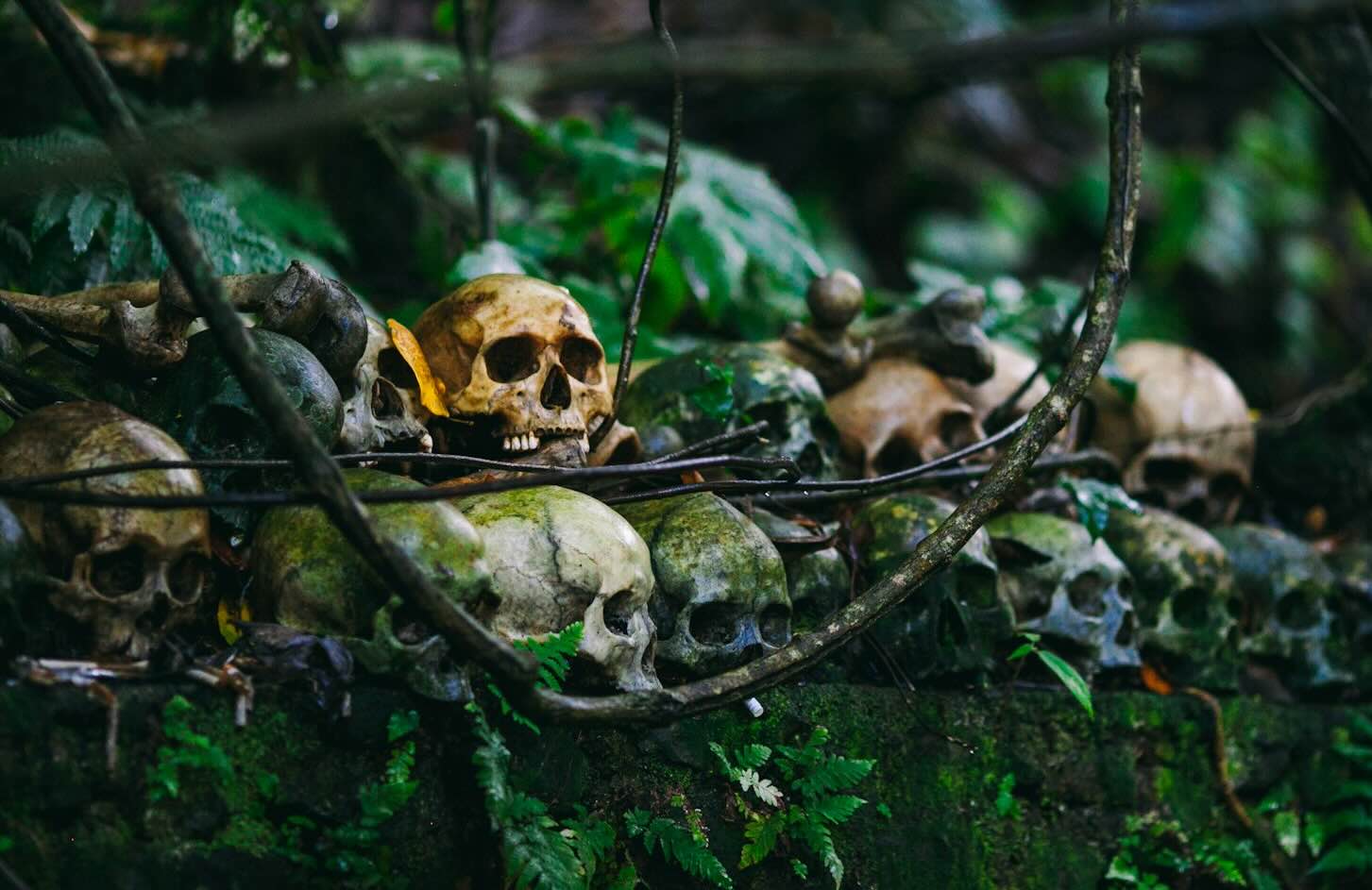For those of us addicted to true crime podcasts, dark tourism, or visiting graveyards while on vacation, a recently published study examines why we are the way we are. Humans love “dark events” and, as it turns out, a handful of different social and scientific factors push our brains to desire them.
In a recent study published in the Annals of Tourism Research, researchers James Kennell and Metod Šuligoj shed light on why humans are drawn to these organized events linked to death, disaster, and suffering.
The term “dark events” has its roots in the growth of dark tourism scholarship over the past three decades. Initially used to describe commemorative events, it has since expanded to include a wide range of activities, from “day of the dead” themed hospitality events, true crime and murder themed tours, to immersive horror experiences, and re-enactments of historic battles.
In simple terms, more people are seeking out these types of experiences, so Kennell and Šuligoj decided to explore why, but noticed immediately that the current literature was pretty lacking.
According to the study, the current research on dark events is limited because it is primarily dependent on dark tourism alone.
“Because of this,” the authors write, “the literature overemphasises the importance of travel, and its economic and social impacts, and does not engage with dark events as worthy of study in themselves.”
To put it simply, most studies on the phenomenon rely on tourist engagement, spending, and interest, and not on the dark event itself.
Secondly, nearly all previous research has been case-study based, meaning that few have attempted to connect dark events together via shared features or similarities.
So, to remedy this, Kennell and Šuligoj employed a theory synthesis approach to develop their new framework. This method involved reviewing the literature and identifying key concepts from thanatology, dark tourism, dark leisure, and collective memory.
Thanatology, the study of death and dying, was chosen as the domain theory due to its influence on dark tourism research. The method theories of dark tourism, dark leisure, and collective memory were used to provide additional insights into the empirical study of dark events.
The researchers identified multiple themes that influence our rising interest in death and dark events, highlighting that all these factors play a role in its rise in popularity.
First, the researchers elaborate on the plain and simple fact that dark events can and are commercialized. The economic aspects of dark events can be lucrative, and resources are spent on promoting and advertising them to consumers. People like dark events because there is a market that sells it, and we are happy to buy.
Secondly, the researchers focus on the political and social use of dark events to reinforce dominant cultural ideologies, or to create “contested memories” in complex political settings, such as reenacting historical battles to make one side seem more honorable than the other, or events that commemorate victories in war.
The study also elaborates the simple fact that some folks are just into exploring their more deviant side, appreciating the often darker and more violent nature of humanity. The study cites the popular “Deathfests” that occur around the world, celebrating the dark and heavy metal scene and related culture. Tying into this, the researchers also explore the fact that dark experiences, outside of the hedonistic vein of deviant behavior, also can provide a sort of social or cultural catharsis of revisiting old harms for the purpose of moving past them.
Lastly, the study explores death itself, and being in its presence, whether actual or symbolic, and how it impacts individuals, and the meanings they derive from those experiences.
“The fascination with dark events stems from a complex interplay of curiosity, thrill-seeking behavior, cultural traditions, psychological exploration, and the desire for communal and shared experiences,” explained Metod Šuligoj, the study’s co-author from the University of Primorska in Slovenia. “These events allow individuals to engage with themes of death, disaster, and suffering in ways that are meaningful, educational, and sometimes transformative.”
The study concludes, apart from the obvious need for further study, dark events cater to our self-reflection regarding our own mortality, and that humans often experience unique emotions when we engage with the subject. For some, they are transformative, and for some, they can be arousing. Moreover, they are commercially successful, and while there are ethical concerns over the commodification of death or suffering, it doesn’t stop the public’s desire for more dark events.
“People are fascinated with dark events for several reasons, embedded in psychological, cultural, and sociological aspects of human behavior,” study co-author Dr. James Kennell from the University of Surrey stated in a press release. “There is a natural human curiosity about the darker aspects of life, including death, tragedy, and the macabre. Dark events often provide a safe and controlled environment for people to explore these themes.”
MJ Banias covers space, security, and technology with The Debrief. You can email him at mj@thedebrief.org or follow him on Twitter @mjbanias.

